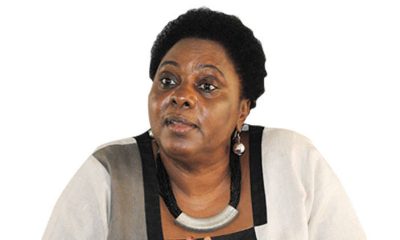News
Converting PTCs into Sec. Schools only worsens the problem of inadequate teachers

Converting PTCs into Secondary Schools only worsens the cause of inadequate teachers in Uganda
The government has triggered panic among the teaching fraternity by decreeing that all teachers have to possess a degree to be able to be enrolled as teachers. Under the new policy, the government has therefore abolished the recruitment of S.4 students for Certificate in Education course that was obtainable at Primary Teachers Colleges and other institutions. The government has therefore suspended the operations of all non-core Primary Training Colleges (PTCs).
Although raising the standard of teaching is a laudable move, the decision to close institutions for training teachers goes against the spirit of the policy – especially of ensuring regular and adequate supply of teachers for the nation.
Under the policy, some 23 PTCs will cease to function as places for teachers’ education and instead be converted into Secondary Schools, and vocational institutions.
We believe that taking away these institutions from their core function of shaping teachers is the wrong move. This is a loss not a gain for the education sector.
PTCs were important institutions for not only teaching but also for determining and regulating the supply of teachers in schools. They were spaces that enabled the government to plan and regulate the supply of teaching staff taking into consideration many factors such as geographical and gender balance.
The new policy seems to suggest that the private sector (Private Universities) will step in to fill the gap of teaching students. As we have seen in other sectors, the private sector can be disappointing when it comes to performing critical public service functions.
It would be fine to require degrees, if the existing institutions were expanded and equipped to fit the new demands of the industry. Instead, they are being converted into students learning centres.
Secondly, although the advent of the internet has reduced the need for physical spaces for learning, Uganda is at the stage where it wants to embrace vocational and skills development. In other words, science and technical skills will be a major focus of the government and the population.
As we all know, these are practical subjects that need a hands-on approach. But we must appreciate however that the country and the teaching fraternity sorely lacks skilled teachers to impart these skills. It would therefore be prudent to use the PTCs as places for retooling teachers to be able to acquire the vocational skills or recruit new people, train them to become teachers and deploy them.
By converting these colleges into secondary schools, we are missing the opportunity to boost the skills agenda and empowering the department for industrial training (DTA), to expand and do a better job of training better skilled teachers.
How will the government raise the critical mass of well-trained teachers to deploy in schools to implement the vocational education? One should wonder?
It is for those reasons therefore that we urge the government revisits the policy to preserve the spaces as campuses for the newly created Uganda National Teachers Education (UNITE) and make it stronger, better equipped and more attractive to the students in order to be able to meet the needs of the industry and the economy at large.
Comments























